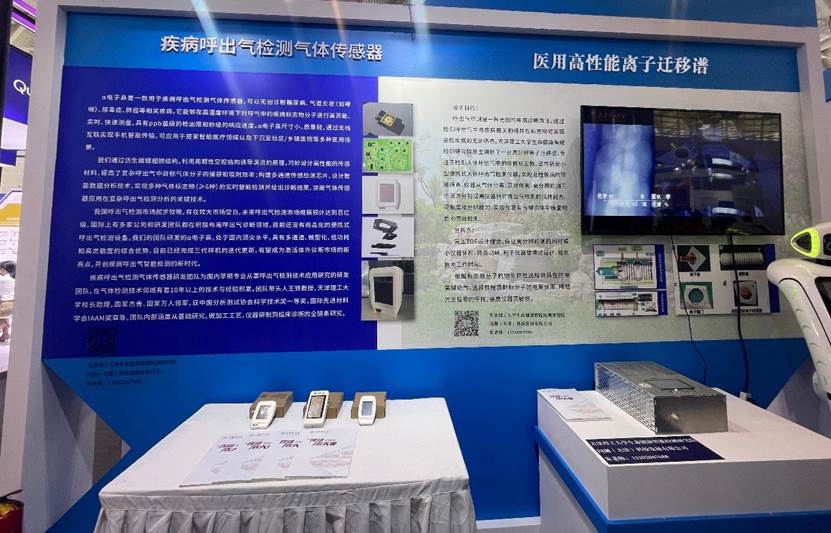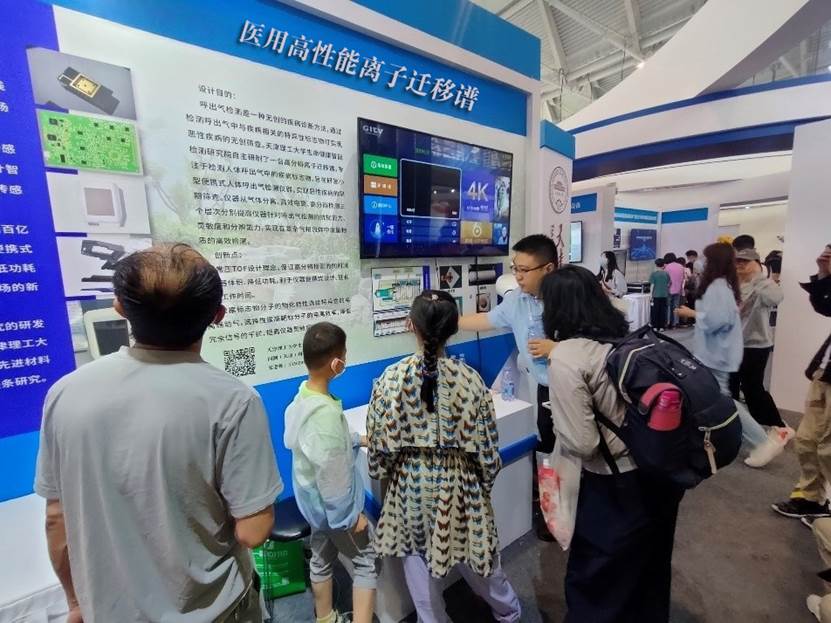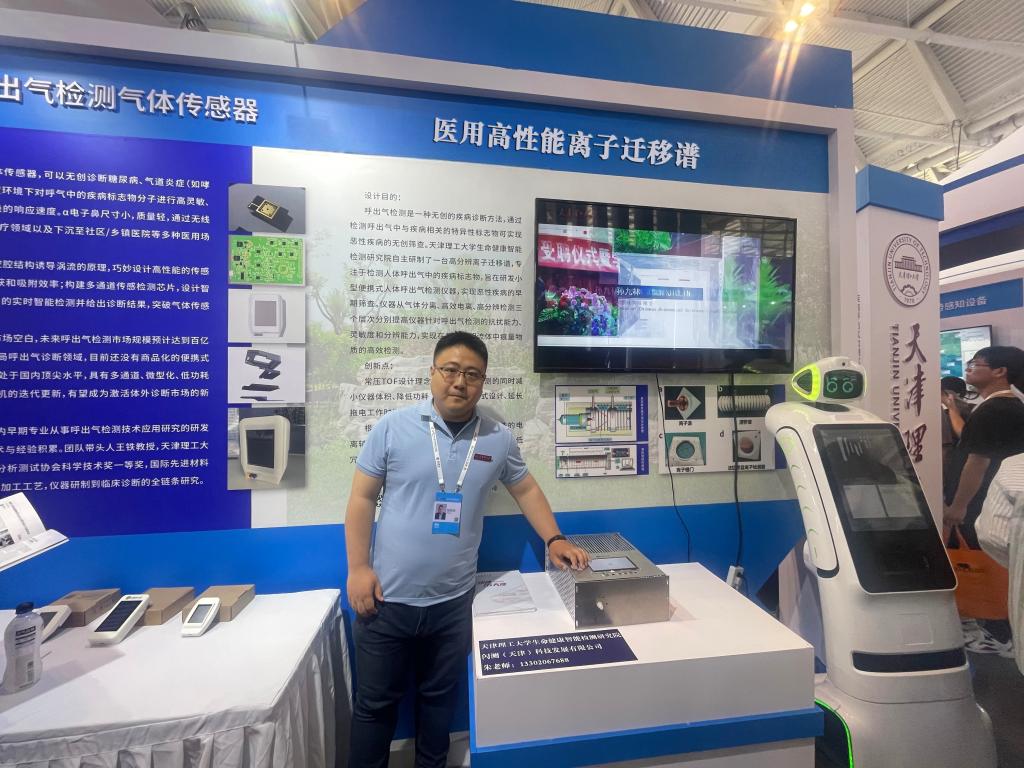On May 18, 2023, the 7th World Intelligence Congress kicked off in Tianjin National Convention and Exhibition Center.The theme of this year's conference is "Smart World, Powerful Future", focusing on the new trends, new technologies and new business models of artificial intelligence development.The scientific research achievements of Prof. Tie Wang's team from the Life and Health Intelligent Research Institute of Tianjin University of Technology were presented in the scientific and technological achievements of Tianjin universities in this intelligence congress.

On the first day of the congress, two young faculty members, Xinyuan Zhou and Kailin Zhang, brought our self-developed gas sensors for disease exhalation detection and medical high-performance ion mobility spectrometry to this intelligence congress.Once the product was displayed, with its "real-time, accurate, fast, portable" genetic brand, it won the attention of the majority of exhibitors and guests, attracting everyone to stop to watch and experience, and received the attention and reports of many news media.

Exhaled breath testing is a novel in vitro non-destructive disease diagnostic technique that detects disease-related specific markers in exhaled breath, thus enabling non-invasive screening for a number of malignant diseases, such as respiratory infectious diseases, airway inflammation (e.g. asthma), cancer, uremia, diabetes and other chronic diseases.The development of portable in vitro testing equipment is also one of the most cutting-edge medical testing instrument development directions. Prof. Tie Wang has been focusing on the research related to exhaled breath detection for many years, and is one of the early teams specializing in exhaled breath detection in China, with fruitful achievements, among which the alpha intelligent electronic nose and medical high-performance ion mobility spectrometry for disease detection are the most mature, which are expected to become the new bright spot to activate the in vitro diagnostic market.The project is expected to be located in Tiankai Park for industrial docking and industrialization of products and technologies to create a new market for intelligent detection of disease exhaled breath.
Alpha e-nose is an electronic device for intelligent detection of exhaled breath for a variety of diseases, breaking through key technologies in the field of exhaled breath detection. Through years of accumulation of original innovation from 0 to 1 basic research to applied research, it realizes highly sensitive, real-time and rapid measurement of disease marker molecules in exhaled breath under real human environment, with detection limit of ppb magnitude and second-level response speed.Its test results are transmitted by Bluetooth to the cell phone interface and displayed with different color keys, green indicates healthy and red indicates unhealthy. α electronic nose is small in size and light in weight, and is a portable device that can serve a variety of medical scenarios such as home and community/rural hospitals.

The alpha electronic nose developed by Associate Researcher Xinyuan Zhou and his team
Medical high-performance ion mobility spectrometry is a small portable human exhaled breath detection instrument, independent research and development of key components and systems, through the detection of disease markers in human exhaled breath to achieve early screening of malignant diseases, breaking through the "neck technology", with independent research and development and the ability to replace imported.The device can also be used for intraoperative noninvasive anesthesia monitoring, providing anesthesiologists with real-time anesthesia status monitoring data.Medical high-performance ion mobility spectrometry from the gas separation, high efficiency ionization, high-resolution detection of three levels to improve the immunity, sensitivity and resolution of the instrument for the detection of exhaled gas, respectively, to achieve efficient detection of trace substances in complex gas-phase fluids.

Assistant Researcher Kailin Zhang and his team developed the medical high-performance ion mobility spectrum
Through product demonstrations at this intelligence congress and in-depth exchanges with experts and peers in various fields, the Institute will develop university-enterprise cooperation in the future, further strengthen the transformation of scientific and technological achievements, and contribute to the life and health industry in Tianjin.